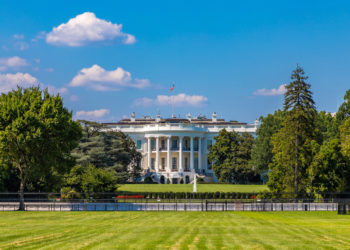In recent years, there have been quite a few large-scale initiatives that have moved the needle of scholarly communication practice significantly in the direction of more open access (OA). Transformative agreements at the system, state, consortial, and even national levels have created new arrangements whereby (one way or another) faculty OA publication costs are now covered by their host institutions, and of course national and private funders have begun imposing OA publishing requirements on the researchers they fund – while in the US, newly expanded federal requirements have been announced which would significantly expand public (as distinct from open) access to published reports of all federally-funded research.
These developments have all been hailed as important steps on the road to an eventual universal transition to open (or at least open-ish) access to scholarly publications.
But it’s worth noting several recent developments that are nudging the scholarly communication ecosystem in the opposite direction and therefore complicate that future outlook.

For example, a deal struck in November between Elsevier and 44 universities in Texas (operating as the Texas Library Coalition for United Action, or TLCUA) provides for discounted and expanded access to Elsevier content across the consortium – a group that represents more than 660,000 students and 44,000 faculty. This is, importantly, a toll-access arrangement, not an OA arrangement – though it’s also worth noting that its terms include a rights reversion to authors whereby, after an initial copyright transfer from authors to the publisher at the time of publication, “rights (will) go back to authors after a period of time that will be collaboratively determined with Elsevier.” This will make it possible for authors to distribute their work on an OA basis after that period, but there doesn’t seem to be any requirement that they do so – and, of course, not everyone will agree that delayed rights reversion constitutes genuinely “open” access in any case. In other words, this large and important agreement does not move the scholarly communication ecosystem in the direction of a universal OA transition. Instead, what it represents is a slightly altered version of the much-maligned Big Deal model, at a state-wide scale and with a rights-reversion component. (There will be much more discussion of the TLCUA agreement to come in The Scholarly Kitchen.)
The TLCUA and ONOS programs do not move us in the direction of open access — they are new manifestations of the Big Deal.
Another, more recent announcement from India describes a deal currently in the works that – if realized – will create another roadblock (or at least a speed bump) on the road to universal OA. India’s national ONOS (“One Nation One Subscription”) program, which has been in the works since 2017 and will reportedly be implemented in April of this year, would be a multi-publisher, national-level Big Deal agreement, the purpose of which is to contain costs while making content available to all Indian institutions of higher education. While details are still a bit hard to come by, India’s Ministry of Education has reportedly issued a statement saying that the government “is considering 70 publishers’ resources under the first phase,” and there are also reports that the government’s Higher Education Secretary has asked university officials to coordinate this year’s subscription renewals with the work of the ONOS team.* (I’ve been unable to locate any of these government statements themselves online, including at the website of India’s Ministry of Education; all of the information I’ve provided here is from third-party news sites. If any readers can provide links to government memos or press releases, please do so in the comments.)
Now, these reports and announcements do have a whiff of prematurity to them – I can find no indication as to whether any publishers have agreed to sign on to ONOS. Nature reports that Elsevier and Springer Nature have both made public comments regarding the program that are mildly positive but notably non-committal. But if this deal (or even something substantially like it) is eventually implemented, it will constitute another significant setback for predictions of a universal OA future – in part because it will signal that in at least some major polities, the primary concern is not with making all research freely available globally, but with making needed research available to their constituencies. That’s a fundamental and philosophical disagreement with those working for universal OA, not just a disagreement regarding timelines, strategies, and models. India has already clearly signaled that it is not interested in adopting a national OA scheme along the lines of Plan S; it is going to go its own way, in “directions (that) will be entirely determined by the interests of Indian academia and of India.” And the ONOS initiative makes clear that India’s vision for the future of scholarly communication on the subcontinent involves ongoing support for the subscription model of access, at least as one important element of the scholarly communication ecosystem. If India is able to make this program work, it seems entirely possible that other developing countries will see it as an attractive template for their own deals.
*UPDATE 5 January: A kind reader provided me a .pdf copy of the memo from Sanjay Murthy, Secretary of Higher Education in India’s Ministry of Education, asking university libraries to “put on hold” the “renewal of e-resources” from the 70 publishers targeted for inclusion in the ONOS deal pending the government’s negotiations. With the text of that memo in hand I was able to locate a copy online, which can be found here. It is dated 11 November 2022, and indicates that the negotiations with publishers were to begin “shortly.”
Discussion
6 Thoughts on "Return of the Big Deal: Developments in Texas and India"
It is probably early to say that these are significant setbacks for predictions of a universal OA future. The path to an OA future is a meandering one, but progress, especially recently, continues to be made. But I completely agree these are noteworthy agreements that are worth discussion. So thanks for writing about them and I hope you write a follow up on what happens in India.
I think that the drive toward universal open access is being hampered by the ham-fisted nature its proponents are using in their attempt to implement it. Plan S was dreamed up by a relatively small group of like-minded people without the input of many of the actual research producers and publishers. They came up with a model that works for them and simply presumed that the rest of the world would sign up.
When that didn’t happen they turned to fiat decrees which mandate open access.
But not everyone has the resources to turn on a dime and bow to the whim of whoever grabs the microphone next, and until some sugar daddy steps forward and funds universal OA across the board for everyone, world-wide, some institutions, and yes even entire countries, are going to look to secure their own access on terms that they can afford just as some publishers are going to continue to cut deals to ensure that they can continue to publish.
Simply put, unless and until the researchers are prepared to self-publish their work without peer review as blog posts, free open access isn’t free. Someone has to pay to keep all of the wheels in motion, and right now the Big Deal does that. We have to solve the funding issue to move the ball.
Rick, I found this old (Jan 2021) press release from Vigyan Prasar (an autonomous organization set up by the Government of India): https://vigyanprasar.gov.in/isw/Government-moots-one-nation-one-subscription-policy.html
A quick glance didn’t reveal any more recent news items on the website with respect to this development.
This report (dated 21 Jan 2021) by India International Centre provides details on the process, implementation plans, infrastucture, and recommendations: https://iicdelhi.in/sites/default/files/2022-09/OP-111_Final_13.09.2022.pdf
Hope these links turn out to be useful.
Thanks very much for those links, Minhaj. I find it interesting that although the URL suggests this document was finalized in September of 2022, the report itself indicates that it was “organized” (written? finalized? published?) in January 2021 — the same date as the press release you also helpfully shared. The apparent lack of more recent official government communications does make me wonder about the current status of the ONOS program.
I think this discussion will be relevant to you.
http://www.lislinks.com/forum/topics/one-nation-one-subscription


